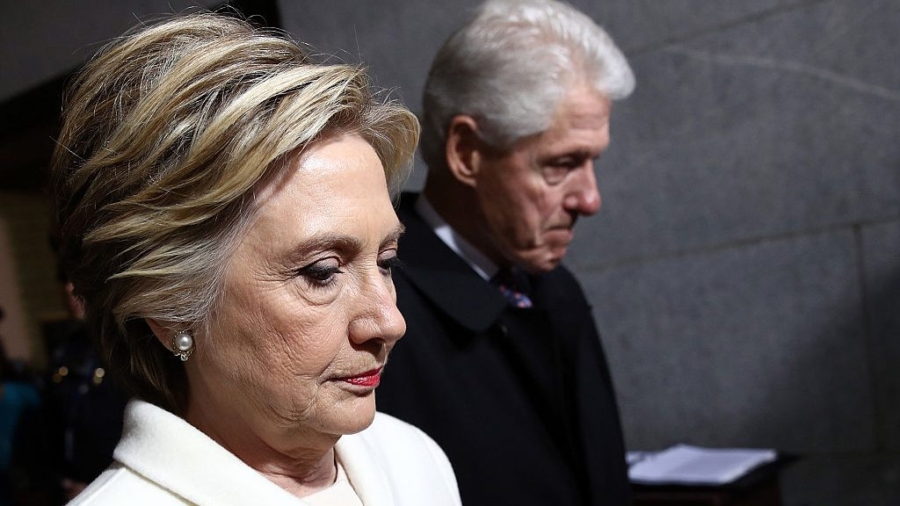Department of Justice prosecutors have requested information from FBI agents about an investigation they conducted into the so-called Uranium One deal, NBC News reported on Thursday.
The DOJ prosecutors are currently establishing whether a special counsel is warranted to look into the controversial deal that gave Russia control over Canadian mining company Uranium One, which at the time controlled 20 percent of the uranium supply licensed for mining in the United States.
By giving Russia control over a significant amount of American uranium supplies, it created a potential national security risk. Despite the assurances of the Nuclear Regulatory Commission (NRM) to Congress that the uranium mined by Uranium One would not leave the United States, Uranium has left the country.

NRM memos reviewed by The Hill show that Uranium transfers were approved by the Obama administration to Canada as well as Europe. From either country it could have made its way to other countries, potentially including adversaries of the United States in pursuit of nuclear weapons.
Chairman of the Senate Judiciary Committee Chuck Grassley (R-Iowa) has called on the DOJ to appoint a special counsel to look into the agreement.

Russia’s nuclear energy agency, Rosatom, acquired the controlling stake in Uranium One in 2010.
Because uranium, when enriched, is a key component for nuclear weapons, the deal required a national security review by the Committee on Foreign Investments (CFIUS) in the United States.
The State Department is part of CFIUS and was required to give its approval for the deal. At the time of the review and the approval given by the State Department, Hillary Clinton served as Secretary of State.
During the time the deal was under review, payments made their way from Uranium One and Russian officials to the Clintons.
The payments were detailed by The New York Times in a 2015 exposé, in which the payments made to the Clinton Foundation as well as former president Bill Clinton were detailed.
Uranium One’s chairman used his family foundation to make 4 donations totaling $2.35 million to the Clinton Foundation.
According to The New York Times, those donations were not disclosed by the Clintons despite a deal to disclose all donors that Hillary Clinton reached with the Obama administration before being appointed as Secretary of State.

At the same time as the security review was being conducted, Bill Clinton received a speaking fee of $500,000 from a Kremlin-linked investment bank.
In 2005, the Clinton Foundation had already received a $31.3 million donation from Canadian billionaire Frank Giustra, owner of mining company UrAsia, which merged with another mining company in 2007 to become Uranium One, The New York Times reported.
Giustra still serves on the Board of Directors of the Clinton Foundation.
The FBI at the time had also uncovered evidence of a sophisticated Russian bribery plot to get the controversial deal approved.
Citing FBI and court documents, The Hill reported on Oct. 17 that the Russian officials had engaged in “bribery, kickbacks, extortion and money laundering designed to grow Vladimir Putin’s atomic energy business inside the United States.”

The FBI also had a witness who possessed documents showing that Russian nuclear officials had routed millions of dollars to the United States to benefit the Clinton Foundation, sources told The Hill.
An FBI informant in the case named William Campbell had gathered evidence on “millions of dollars in bribes and kickbacks, plus extortion and money laundering,” the Hill reported based on a review of documents provided by Campbell.
Campell had been prevented by then-Attorney General Loretta Lynch from testifying to Congress on his findings. In October, the DOJ lifted the gag order on the informant, allowing him to speak to congressional panels.

The FBI director at the time was Robert Mueller, who is now the special counsel investigating the allegations of Russian meddling in the 2016 elections.
A leaked diplomatic cable obtained by Wikileaks shows that Mueller had personally flown to Moscow in early 2009 to deliver a 10-gram sample of highly enriched Uranium. The transfer of the strip from the FBI director to Russian officials was conducted on the tarmac, according to the cable. The cable was sent by Secretary of State Hillary Clinton.
The sample had been requested by Russia following the seizure of highly enriched Uranium in Georgia in 2006 after which it had been transferred to U.S. custody.
From The Epoch Times

